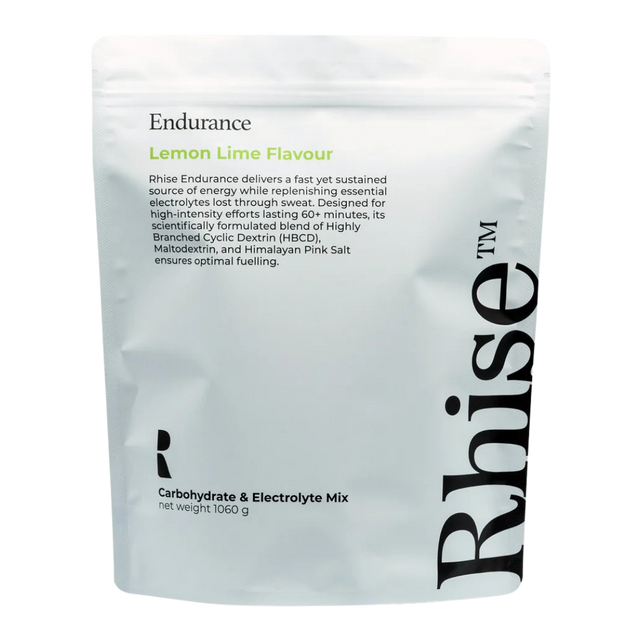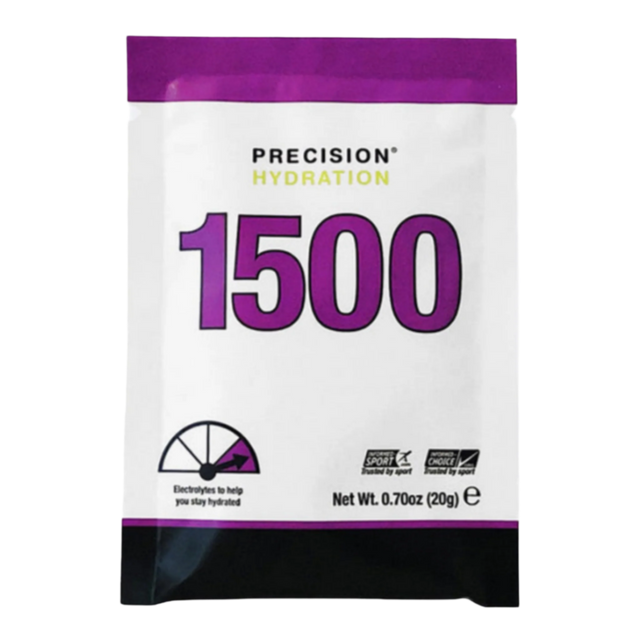Top 5 Hydration Mistakes Every Endurance Athlete Should Avoid
You’ve dialled in your carbs, but what’s your hydration strategy? Athletes often focus on carbs, but it’s hydration that can make or break performance. From drinking plain water to relying on untested race-day drinks, these common mistakes can lead to fatigue, cramps, and GI issues. Learn how to optimise hydration, electrolytes and endurance fuelling to stay race-ready from start to finish.
Table of Contents
-
Only Drinking Plain Water
-
No Hydration Plan, Just Fuel
-
Picking Sports Drinks That Upset Your Gut
-
Not Trialling Race-Day Hydration
-
Falling for the Sodium Hype
Only Drinking Plain Water
-
Plain water alone can dilute blood sodium if consumed in excess. Diluting blood sodium can place athletes at risk of hyponatremia (1).
-
Hyponatremia from drinking plain water can reduce endurance, cognitive function, and skill execution during training or racing (2).
-
A small amount of carbohydrates and sodium are needed for optimal fluid absorption from the small intestines into the bloodstream (3).
Under 1 hour → Use a no-added-sugar electrolyte drink. [ Link to no added sugar drink article]
Over 1 hour or using liquids for energy (Including high-intensity sessions under 1 hour) → Use a sports hydration drink with carbohydrates and electrolytes.
No Hydration Plan, Just Fuel
Many endurance athletes can tell you exactly how many grams of carbohydrate they’ll take in per hour during training or on race day. But ask about their hydration plan, and most are left unsure.
A 2% loss of body mass from sweat can derail your race by reducing endurance, slowing your decision-making and impairing skill execution. Dehydration will sabotage performance far sooner than missing your carb targets (4,5,6).
Things to Consider:
→ Aim for 150-350mL every 15-20 minutes for exercise lasting longer than 60 minutes to stay adequately hydrated (1).
→ Expert guidelines recommend drinks with 4-8% carbs and 23-69 mg sodium per 100 mL for optimal fluid absorption, energy delivery and gut comfort (1).
My Go-To Sports Hydration:
Picking Sports Drinks That Upset Your Gut
-
Drinks with too high carb concentration can slow gastric emptying and cause GI upset (1).
-
Some women and people with sensitive stomachs may struggle with sugars like fructose or in some cases maltodextrin. Choosing sports products with alternative carbs such as glucose, cyclic dextrin, dextrose etc can be easier to tolerate (7-10).
-
Some gut friendly drinks you could try →
Not Trialling Race-Day Hydration
-
Relying on untested aid station electrolytes can backfire. Gut issues or missed hydration or sodium needs can ruin your race
-
Practicing hydration strategies in training, as tolerance and needs vary for each athlete (1).
-
Timing is crucial. Even the right drink at the wrong time (too much at once, or too late) can hurt performance.
-
Environmental conditions matter. Heat, humidity, and course elevation can all change how much fluid and sodium you need.
-
Practice under race intensity. Sipping a drink on an easy run isn’t the same as handling it at race pace.
Falling for the Sodium Hype
-
While sodium helps maintain fluid balance and drive thirst, needs vary widely, and excessive sodium isn’t always necessary (1).
-
You don’t need to replace all the sodium you lose in sweat. Aiming to cover most, not 100%, is enough to support performance and hydration without overloading the gut (1).
-
Ensuring you can absorb and tolerate your fluids and carbohydrates is more important than trying to hit high sodium targets.
Summary
To optimise hydration for endurance events, athletes need more than plain water. Relying solely on water may lead to hyponatremia, impairing endurance, cognitive function and skill execution. For optimal performance, hydration drinks with electrolytes and carbohydrates should be used, tailored to exercise duration and intensity and practiced in training to ensure tolerance. While sodium is important for fluid balance, the focus should be on absorbable, well-tolerated fluids rather than trying to replace every milligram lost in sweat.
Ash Miller
Dietitian and Nutritionist (Masters)
Bachelor of Physical and Health Education
Instagram: @ashthomo_nutrition
References:
1. Sawka MN, Burke LM, Eichner ER, Maughan RJ, Montain SJ, Stachenfeld NS. Exercise and fluid replacement. Med Sci Sports Exerc. 2007;39(2):377-90. doi:10.1249/mss.0b013e31802ca597
2. Seal AD, Kavouras SA. A review of risk factors and prevention strategies for exercise associated hyponatremia. Auton Neurosci. 2022 Mar;238:102930. doi: 10.1016/j.autneu.2021.102930. Epub 2021 Dec 21. PMID: 35016044.
3. Jeukendrup, A.E., Currell, K., Clarke, J. et al. Effect of beverage glucose and sodium content on fluid delivery. Nutr Metab (Lond) 6, 9 (2009). https://doi.org/10.1186/1743-7075-6-9
Judelson D.A., Maresh C.M., Anderson J.M., Armstrong L.E., Casa D.J., Kraemer
4. W.J., Volek J.S. Hydration and muscular performance: Does fluid balance affect strength, power and high-intensity endurance? Sports Med. 2007;37:907–921. doi: 10.2165/00007256-200737100-00006
5. Thomas, D. T., Erdman, K. A., & Burke, L. M. (2016). American College of Sports Medicine Joint Position Statement. Nutrition and Athletic Performance. Medicine and Science in Sports and Exercise, 48(3), 543
6. Speedy D.B., Noakes T.D., Rogers I.R., Thompson J.M., Campbell R.G., Kuttner J.A., Boswell D.R., Wright S., Hamlin M.A. Hyponatremia in ultradistance triathletes. Med. Sci. Sports Exerc. 1999;31:809–815. doi: 10.1097/00005768-199906000-00008
7. Riddoch, C.; Trinick, T. Gastrointestinal disturbances in marathon runners. Br. J. Sports Med. 1988, 22, 71–74.
8. Miall, A.; Khoo, A.; Rauch, C.; Snipe, R.M.J.; Camões-Costa, V.L.; Gibson, P.R.; Costa, R.J.S. Two weeks of repetitive gut-challenge reduce exercise-associated gastrointestinal symptoms and malabsorption. Scand. J. Med. Sci. Sport 2018, 28, 630–640.
9. ten Haaf, D.S.M.; van der Worp, M.P.; Groenewoud, H.M.M.; Leij-Halfwerk, S.; der Sanden, M.W.G.N.-V.; Verbeek, A.L.M.; Staal, J.B. Nutritional indicators for gastrointestinal symptoms in female runners: The “Marikenloop study”. BMJ Open 2014, 4, e005780
10. Podlogar T and Wallis G.A (2022). New Horizons in carbohydrate research and application for endurance athletes. Sports Medicine 52.
Disclaimer:
The content in this blog is for general information only and is not a substitute for professional medical advice, diagnosis, or treatment. Always speak with your doctor or allied health team before changing your diet, exercise, or taking supplements, especially if you have a health condition or take medication. Please use this information as a guide only. Aid Station doesn't take responsibility for individual outcomes.


















